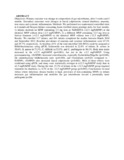| dc.contributor.author | Jaeggi, Tanja | |
| dc.contributor.author | Kortman, Guus | |
| dc.contributor.author | Moretti, Diego | |
| dc.contributor.author | Chassard, Christophe | |
| dc.contributor.author | Holding, Penny | |
| dc.contributor.author | Dostal, Alexandra | |
| dc.contributor.author | Boekhorst, Jos | |
| dc.contributor.author | Timmerman, Harro | |
| dc.contributor.author | [et al.] | |
| dc.date.accessioned | 2015-09-24T09:31:20Z | |
| dc.date.available | 2015-09-24T09:31:20Z | |
| dc.date.issued | 2015 | |
| dc.identifier.citation | Jaeggi, T., Kortman, G., Moretti, D., Chassard, C., Holding, P., Dostal, A., ... & Zimmermann, M. (2015). Effects of High and Low Dose Iron-Containing Micronutrient Powders for In-Home Fortification of Complementary Foods on the Gut Microbiome and Gut Inflammation in Kenyan Infants. European Journal of Nutrition & Food Safety,Vol.: 5, Issue.: 5 | en_US |
| dc.identifier.issn | 2347-5641 | |
| dc.identifier.uri | http://sciencedomain.org/abstract/10529 | |
| dc.identifier.uri | http://hdl.handle.net/11295/91437 | |
| dc.description.abstract | Objectives: Primary outcome was change in composition of gut microbiome, after 3 weeks and 4 months. Secondary outcomes were changes in faecal calprotectin, treated diarrhoea, anaemia, iron status and systemic inflammation.
Methods: We performed two randomized controlled trials in 6-month-old Kenyan infants consuming home-fortified maize porridge daily for four months. 1) infants received an MNP containing 2.5 mg iron as NaFeEDTA (+2.5 mgFeMNP) or the identical MNP without iron (-2.5 mgFeMNP). 2) a different MNP containing 12.5 mg iron as ferrous fumarate (+12.5 mgFeMNP) or the identical MNP without iron (-12.5 mgFeMNP).
Results: We enrolled 117 infants, and 101 infants completed the studies between March 2010 and September 2012. Baseline prevalence of anaemia and systemic inflammation were 67.3% and 29.7%, respectively. At baseline, 63% of the total microbial 16S rRNA could be assigned to Bifidobacteriaceae; using qPCR, Salmonella was detected in 22.8% of infants, B. cereus in 38.6%, S. aureus in 71.3%, C. difficile in 53.5%, and C. perfringens in 86.1%. Body iron stores increased in the +12.5 mgFeMNP (p=0.001), but not in the +2.5 mgFeMNP. Using pyrosequencing, +FeMNPs increased enterobacteria, especially Escherichia/Shigella (p=0.048), the enterobacteria/ bifidobacteria ratio (p=0.020), and Clostridium (p=0.03) compared to -FeMNPs; +FeMNPs also increased faecal calprotectin (p=0.002). Most of these effects were confirmed using qPCR, and many were statistically stronger in ±12.5 mgFeMNP study than in ±2.5 mgFeMNP study. During the trial, 27.3% of infants in the +12.5 mgFeMNP group required treatment for diarrhoea vs. 8.3% in the -12.5 mgFeMNP group (p=0.092).
Conclusions: In rural Africa where infectious disease burden is high, provision of iron-containing MNPs to infants increases gut inflammation and modifies the gut microbiome toward a potentially more pathogenic profile | en_US |
| dc.language.iso | en | en_US |
| dc.title | Effects of high and low dose iron-containing micronutrient powders for in-home fortification of complementary foods on the gut microbiome and gut inflammation in kenyan infants | en_US |
| dc.type | Article | en_US |
| dc.type.material | en | en_US |

